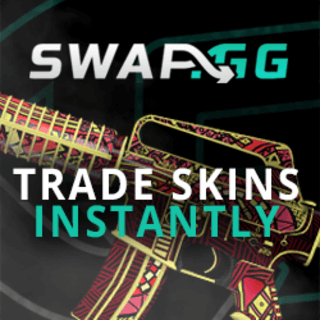NFTs vs. CS: GO Skins
The gaming sector has consistently spearheaded advancements for years. Blockchain technology and non-fungible tokens (NFT) have become prominent, bringing about significant changes in the industry. While NFTs have gained significant attention for their impact on digital ownership.
Gamers are already familiar with virtual assets through Counter-Strike: Global Offensive (CS: GO) skins. These skins allow players to customize their in-game appearance and trade them on platforms. However, there are key differences between CS: GO skins and NFTs.
Digital Possession
CS Skins play a significant role in the gaming community by allowing players to personalize their gaming adventures and exchange these virtual items on platforms such as the Steam Marketplaces. These in-game cosmetics serve as “symbols of status” and their worth is influenced by various aspects, like scarcity levels demand and visual attractiveness. Yet even with their widespread appeal in Counter-Strike in gaming for skins operations, CS Valve Corporation controls the issuance and trading rules of skins, which gives stability but reduces player autonomy over their assets.
NFTs are quite different and a leap forward in digital ownership. Like many other advanced technologies, NFTs rely on blockchain. This technology is used across various industries for purposes such as payments, anonymous use, and security, which are common in platforms like online casinos, e-commerce, and online gaming. For example, an instant casino typically uses blockchain to ensure that crypto or NFT transactions are secure and efficient, allowing quicker transactions with lower fees. Companies are finding that users and the gaming community want instant access to their funds, which is driving demand for these options.
Just as these transactions are recorded on a decentralized ledger, so are NFTs. This means ownership isn't controlled by any single entity but is verified through a network of computers. This decentralization offers enhanced security and transparency, as blockchain records are immutable and can't be changed or duplicated.
Security and Transparency
One of the most significant benefits of blockchain technology is its inherent security features. The decentralized nature of blockchain ensures that digital assets are protected against fraud and tampering. In gaming, this translates to fair play and secure transactions for players who invest time and money into acquiring digital assets. Unlike CS: GO skins, which can be subject to manipulation within Valve's ecosystem or through third-party platforms, NFTs provide a level of security that is more secure compared to traditional gaming environments.
Blockchain's transparency also plays a crucial role in enhancing trust among players. Every transaction involving an NFT is recorded on the blockchain, making it easy to verify ownership history and authenticity. This level of transparency is not typically available with CS: GO skins, where ownership records are maintained within Valve's centralized system.
Interoperability Across Platforms
NFTs have the potential for interoperability across different games and platforms. This increases their value and usefulness significantly. For example; an NFT that is obtained in a game could potentially be used or exchanged in another game or platform that embraces blockchain technology. This level of interchangeability is a significant progression from CS: GO skins that are restricted solely within the Counter-Strike ecosystem.
Transferring assets between platforms offers gamers new opportunities to enhance the worth of their digital collections and motivates developers to design more interconnected gaming that uses blockchain technology.
Economic Opportunities for Gamers
The introduction of NFTs in gaming has fostered player-driven economies where gamers can trade and sell their assets freely on various blockchain marketplaces. This creates new opportunities for monetization and investment within the gaming community. Players can now truly own their digital assets without being restricted by centralized control or platform-specific limitations.
While both CS: GO skins and NFTs can be lucrative, their market dynamics differ significantly. CS: GO skins are tradable within the Steam marketplace or third-party platforms under Valve's regulations. NFTs, again, can be traded globally on several blockchain marketplaces without this type of restriction. This global reach allows for greater liquidity and potential profitability for NFT owners.
A New Era for Game Developers
The ongoing development of technology is paving the way for a new era in gaming with the integration of NFT technology for managing digital assets effectively and securely. The benefits of decentralization and interoperability that NFT technology brings could completely transform the ownership, trading, and security of assets, across different platforms.
A games developer could easily design gameplay experiences that make use of blockchain technology to improve player engagement and interaction. On the other hand, gamers have the opportunity to have more autonomy and authority over their virtual assets. This helps in building a gaming environment that's far more lively and inclusive.
Transformative Potential
The relationship between NFT technology and Counter-Strike shows how blockchain innovation is reshaping gaming. While CS: GO skins have paved the way for virtual asset trading within a centralized system, NFTs offer a more advanced stage of digital ownership that aligns with technological advancements. By embracing blockchain's capabilities in security, interoperability, and economic empowerment, the gaming industry is set to enter a new era where players truly own their digital worlds.













